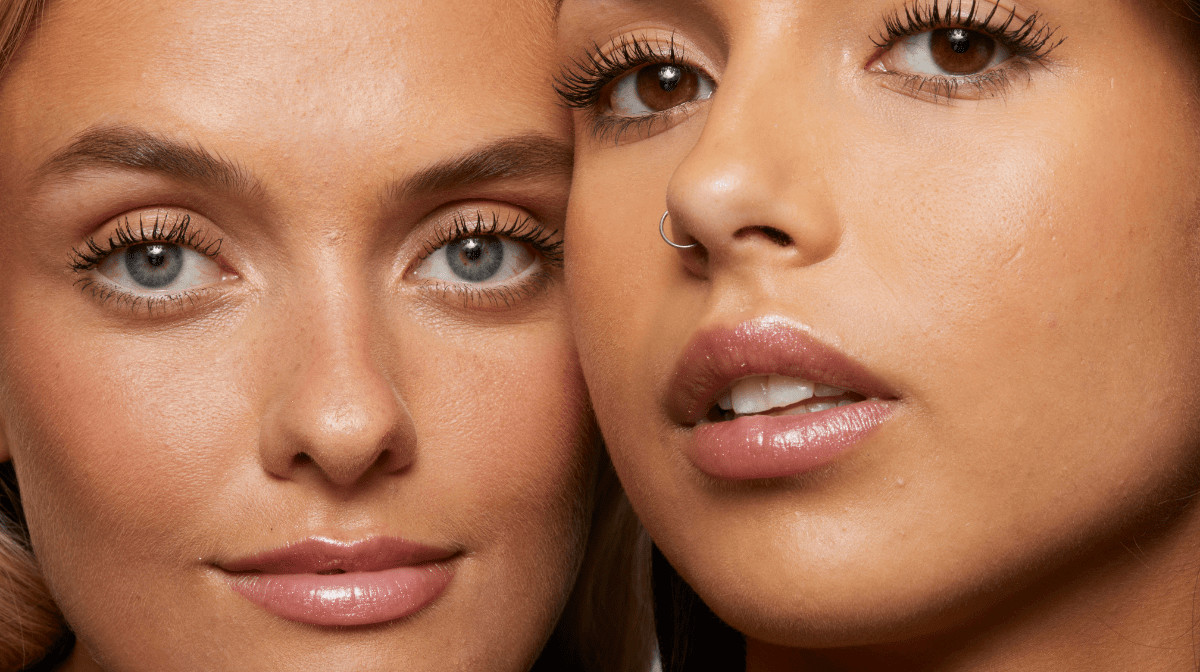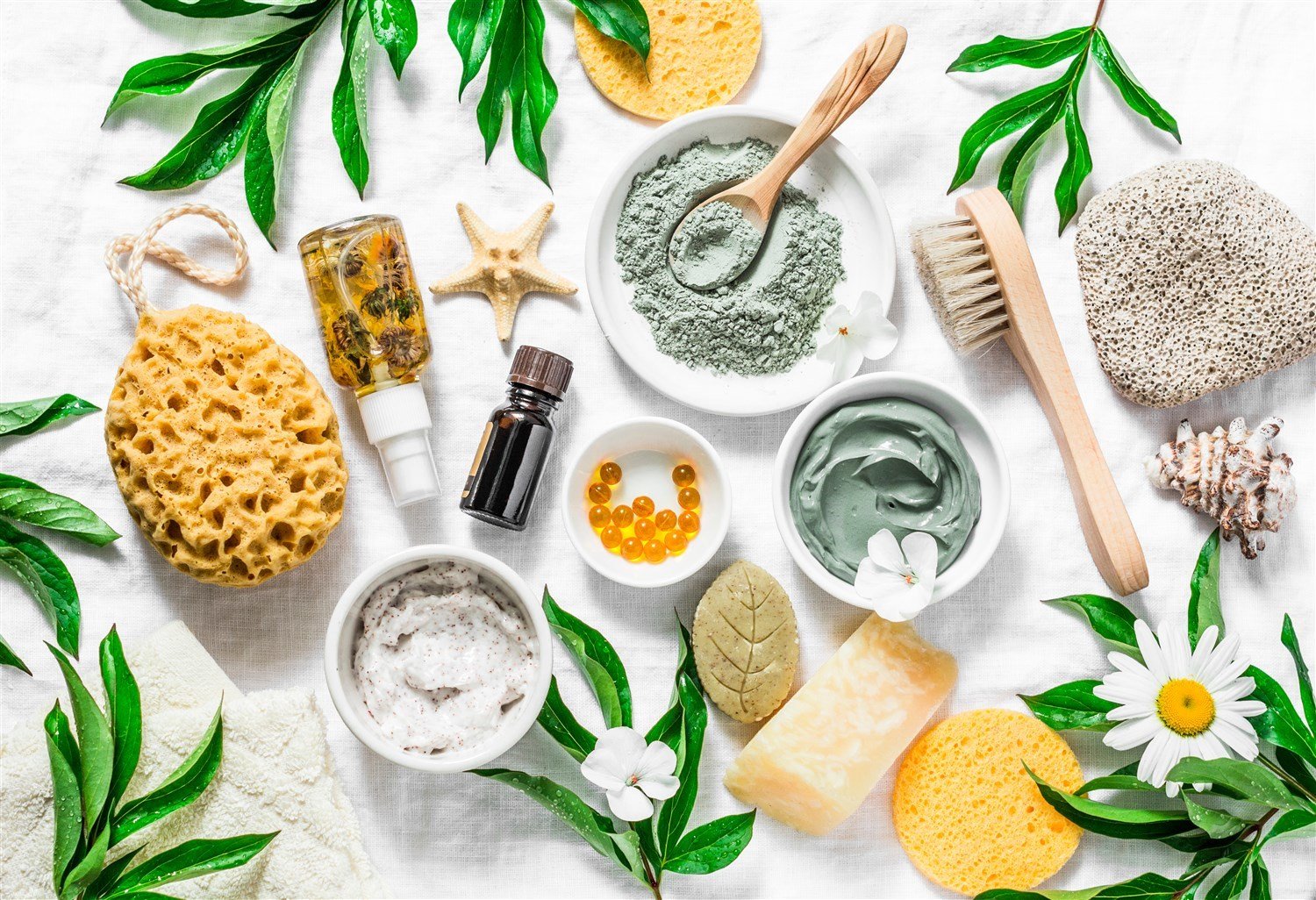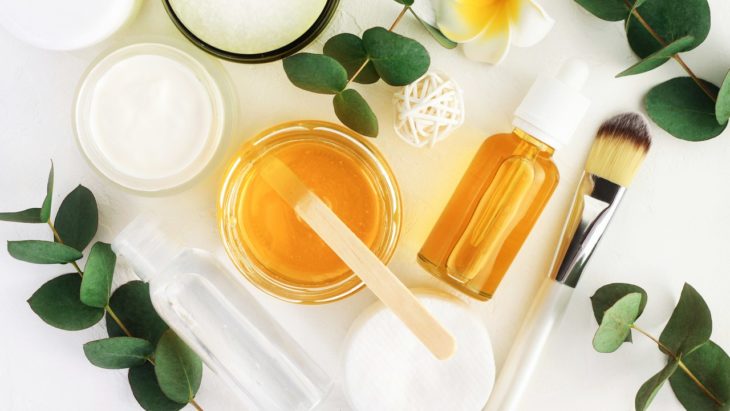The All-Natural Makeup Revolution: A Comprehensive Guide to Beauty with Nature’s Ingredients
Related Articles: The All-Natural Makeup Revolution: A Comprehensive Guide to Beauty with Nature’s Ingredients
Introduction
In this auspicious occasion, we are delighted to delve into the intriguing topic related to The All-Natural Makeup Revolution: A Comprehensive Guide to Beauty with Nature’s Ingredients. Let’s weave interesting information and offer fresh perspectives to the readers.
Table of Content
The All-Natural Makeup Revolution: A Comprehensive Guide to Beauty with Nature’s Ingredients

In an era increasingly conscious of the impact of consumer choices on personal health and the environment, the demand for natural and organic products has surged. This trend extends to the cosmetics industry, where "all-natural" makeup has emerged as a popular alternative to conventional products laden with synthetic chemicals and potentially harmful ingredients. This article delves into the world of natural makeup, exploring its benefits, ingredients, and the factors to consider when making informed choices.
Understanding the All-Natural Makeup Landscape:
The term "all-natural" makeup encompasses products formulated with ingredients derived from natural sources, such as plants, minerals, and essential oils. These ingredients are often processed minimally to preserve their inherent properties and avoid the introduction of synthetic additives. While the exact definition of "all-natural" can vary between brands, it generally excludes ingredients commonly found in conventional makeup, including:
- Synthetic dyes and pigments: These can be harsh on the skin and may cause irritation or allergic reactions.
- Parabens: These preservatives are linked to hormone disruption and potential health risks.
- Petroleum-based ingredients: These can clog pores and contribute to acne.
- Fragrances: Synthetic fragrances can be irritating and trigger sensitivities.
- Silicones: These can create a barrier on the skin, preventing it from breathing and absorbing moisture.
Benefits of Choosing All-Natural Makeup:
The shift towards natural makeup is driven by a growing awareness of the potential benefits it offers:
- Skin Health: Natural ingredients are often gentle on the skin, minimizing the risk of irritation, breakouts, and allergic reactions. Many natural products contain antioxidants and anti-inflammatory agents that can promote skin health and reduce the appearance of blemishes.
- Environmental Sustainability: Natural makeup often utilizes sustainable and ethically sourced ingredients, reducing the environmental impact associated with the production and disposal of conventional cosmetics.
- Transparency and Trust: Natural makeup brands often prioritize transparency in their ingredient lists, allowing consumers to make informed choices based on their values and preferences.
- Ethical Considerations: Many natural makeup brands are committed to cruelty-free practices, avoiding animal testing and sourcing ingredients from ethical sources.
Key Ingredients in All-Natural Makeup:
The world of natural makeup boasts a diverse range of ingredients, each contributing unique properties to the final product. Here are some of the most common and beneficial:
- Plant-Based Pigments: Natural pigments derived from plants like beetroot, turmeric, and iron oxide provide vibrant colors while being gentle on the skin.
- Essential Oils: These potent extracts offer aromatherapy benefits and can be used to enhance the scent and properties of makeup products. Examples include lavender oil for calming, tea tree oil for its antimicrobial properties, and rose oil for its soothing effects.
- Botanical Extracts: Extracts from various plants, such as aloe vera, chamomile, and green tea, provide soothing, hydrating, and antioxidant benefits.
- Minerals: Minerals like mica, titanium dioxide, and zinc oxide offer natural coverage and sun protection.
- Waxes: Natural waxes like beeswax and candelilla wax provide texture, hold, and moisture to makeup products.
Choosing the Right All-Natural Makeup:
While the benefits of natural makeup are undeniable, selecting the right products requires careful consideration. Here are some tips for making informed choices:
- Read the Label Carefully: Pay close attention to the ingredient list and look for products with minimal processing and a high concentration of natural ingredients. Avoid products with synthetic additives, artificial fragrances, and potentially harmful ingredients.
- Research the Brand: Choose brands that prioritize transparency, sustainability, and ethical sourcing. Look for certifications like USDA Organic, Cruelty-Free, and Fair Trade to ensure the product meets your standards.
- Consider Your Skin Type: Natural makeup products are available for all skin types, but it’s crucial to choose products that cater to your specific needs. For example, those with oily skin might prefer oil-free formulas, while those with dry skin may benefit from hydrating ingredients.
- Patch Test: Before applying a new natural makeup product to your entire face, perform a patch test on a small area of skin to check for any potential allergic reactions.
Frequently Asked Questions about All-Natural Makeup:
Q: Is all-natural makeup truly effective?
A: Natural makeup can be just as effective as conventional products, offering coverage, color, and staying power. However, the effectiveness can vary depending on the ingredients and formulation.
Q: Does all-natural makeup have a shorter shelf life?
A: Natural makeup products may have a shorter shelf life than conventional products due to the absence of synthetic preservatives. However, many brands use natural preservatives like vitamin E and essential oils to extend the shelf life while maintaining the integrity of the ingredients.
Q: Is all-natural makeup more expensive?
A: The price of natural makeup can vary widely depending on the brand, ingredients, and product type. However, it’s important to consider the long-term value of using products that are gentle on the skin and promote overall well-being.
Q: Can I use natural makeup if I have sensitive skin?
A: Natural makeup is often a good choice for sensitive skin as it typically contains fewer irritants. However, it’s essential to choose products specifically formulated for sensitive skin and perform patch tests before applying them to the entire face.
Conclusion:
The shift towards all-natural makeup reflects a growing desire for beauty products that align with a holistic approach to health and well-being. By embracing the power of nature, consumers can enjoy the benefits of gentle, effective makeup while contributing to a more sustainable and ethical beauty industry. The key lies in informed choices, careful research, and a commitment to prioritizing ingredients that nourish the skin and the environment. As the demand for natural makeup continues to rise, the industry is expected to evolve, offering a wider range of products and options to cater to diverse needs and preferences.








Closure
Thus, we hope this article has provided valuable insights into The All-Natural Makeup Revolution: A Comprehensive Guide to Beauty with Nature’s Ingredients. We hope you find this article informative and beneficial. See you in our next article!